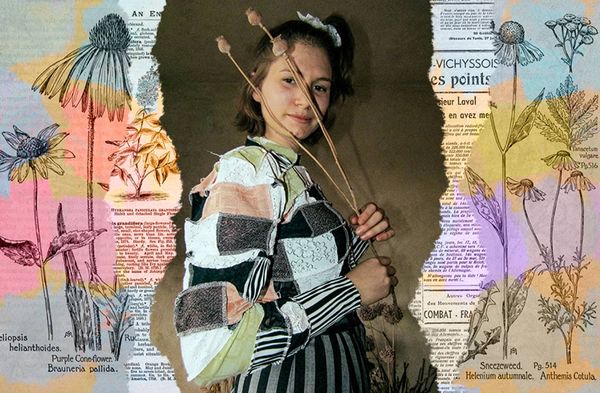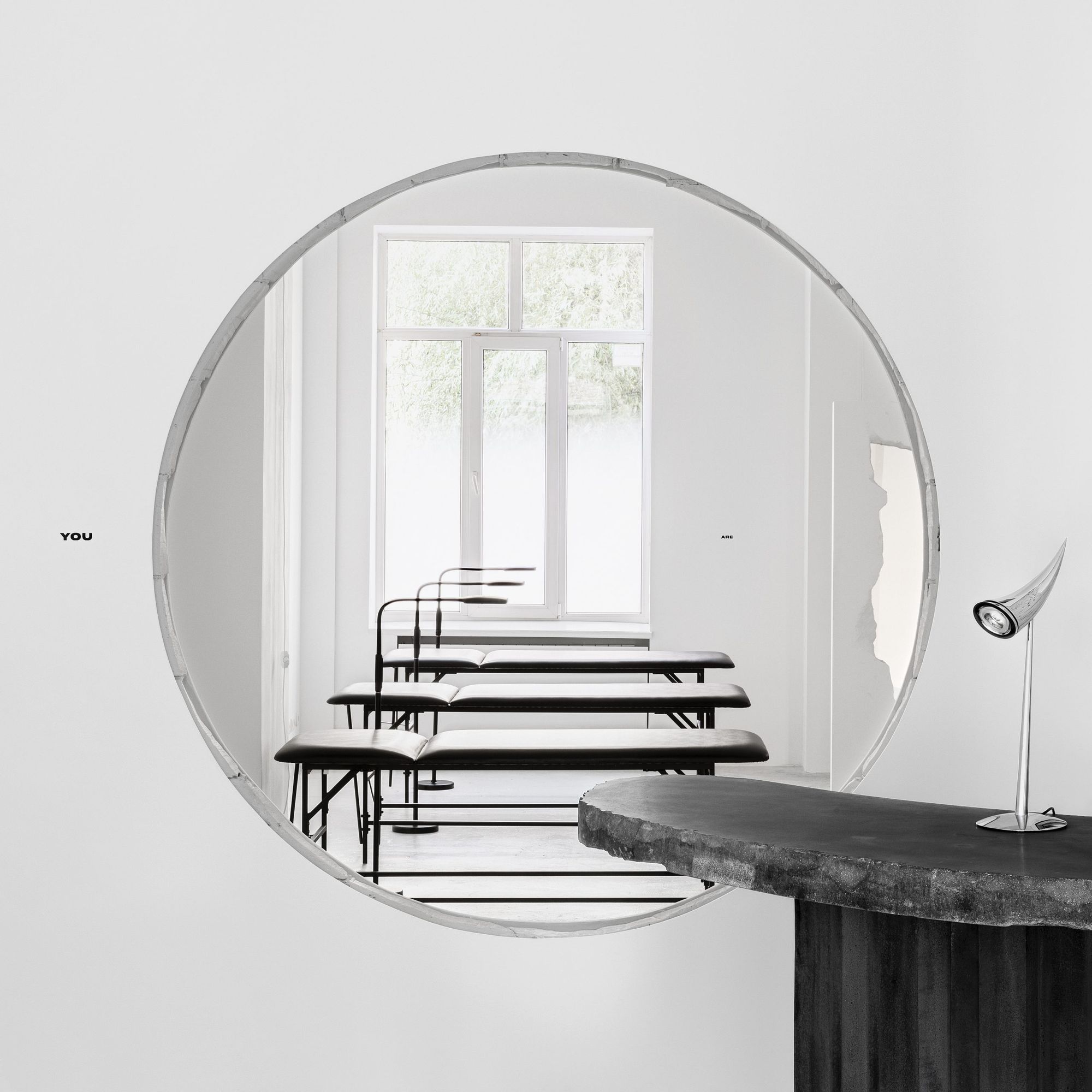The 6:19 tattoo salon evokes the white cube effect of contemporary art galleries. The extravagant yet clean interior is the embodiment of founder Ulyana Nesheva’s style and artistic vision. The studio gives seven tattoo artists a space to create. Join us for a visit to the historic Podil district of Kyiv!
The name of the studio reflects on Psalm 6:19 of the Bible, “You are not your own; you were bought at a price. Therefore glorify God with your bodies.” This is counterpointed by the studio’s slogan, “You are Yours.”
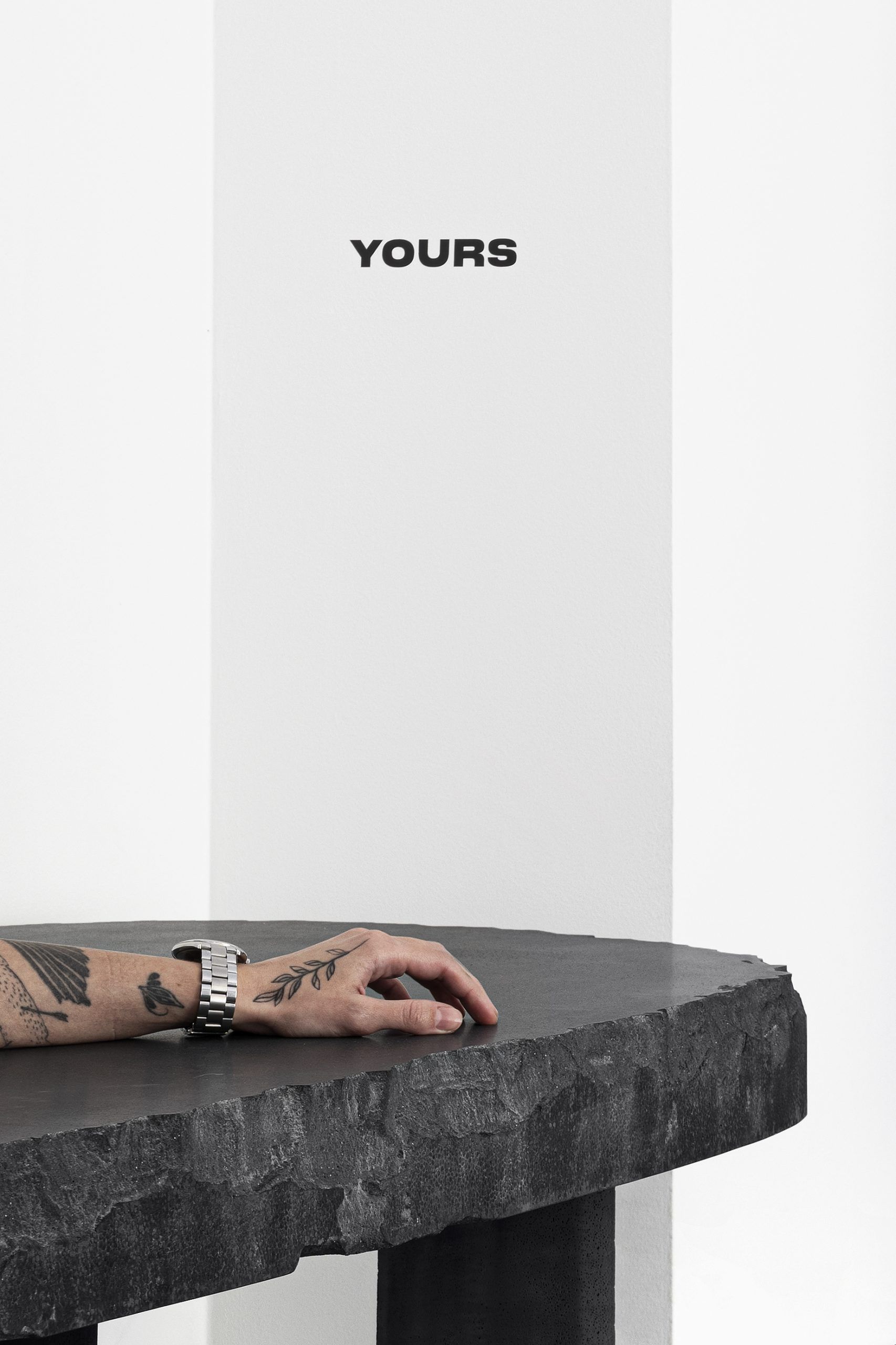
“6:19 Studio highly respects religion and practices followed from the belief. Nevertheless, Ulyana believes in freedom of self-expression and taking control of one’s actions. Each approaches the Bible and religion from a personal point of view. Ulyana’s work is a mirror of her own interpretation. The studio’s slogan is meant to interpret an ability to live life and relish simple things,” they say. “The concept of the studio is also that all of our artists, despite the diversity of their styles and colors, are united by an exploration of minimalism. Simplicity is the ultimate goal and the highest form of complexity,” adds Ulyana.
Following the concept of minimalism, the interiors were opened up and freed from most of the dividing walls and doors, but the exposed wall layers were not covered up. Although they kept the wall behind the reception, they cut a large round hole in the middle of it, which, as a dimensional gateway, provides a sneak peek into the main studio space where the tattooing takes place. For perfect orderliness, functional units such as the bathroom and the dressing room were placed between the two walls, marked in black on the floor plan.
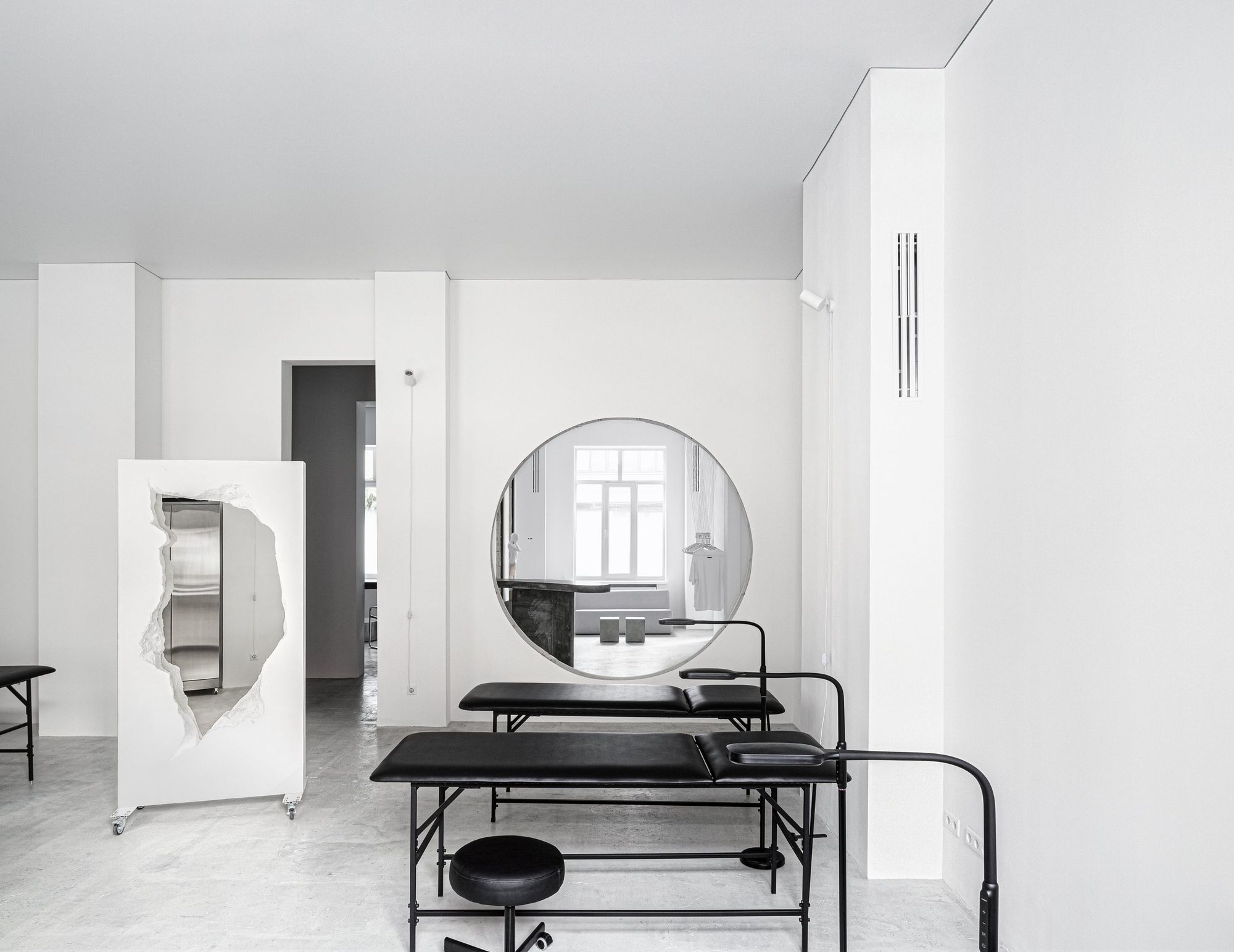
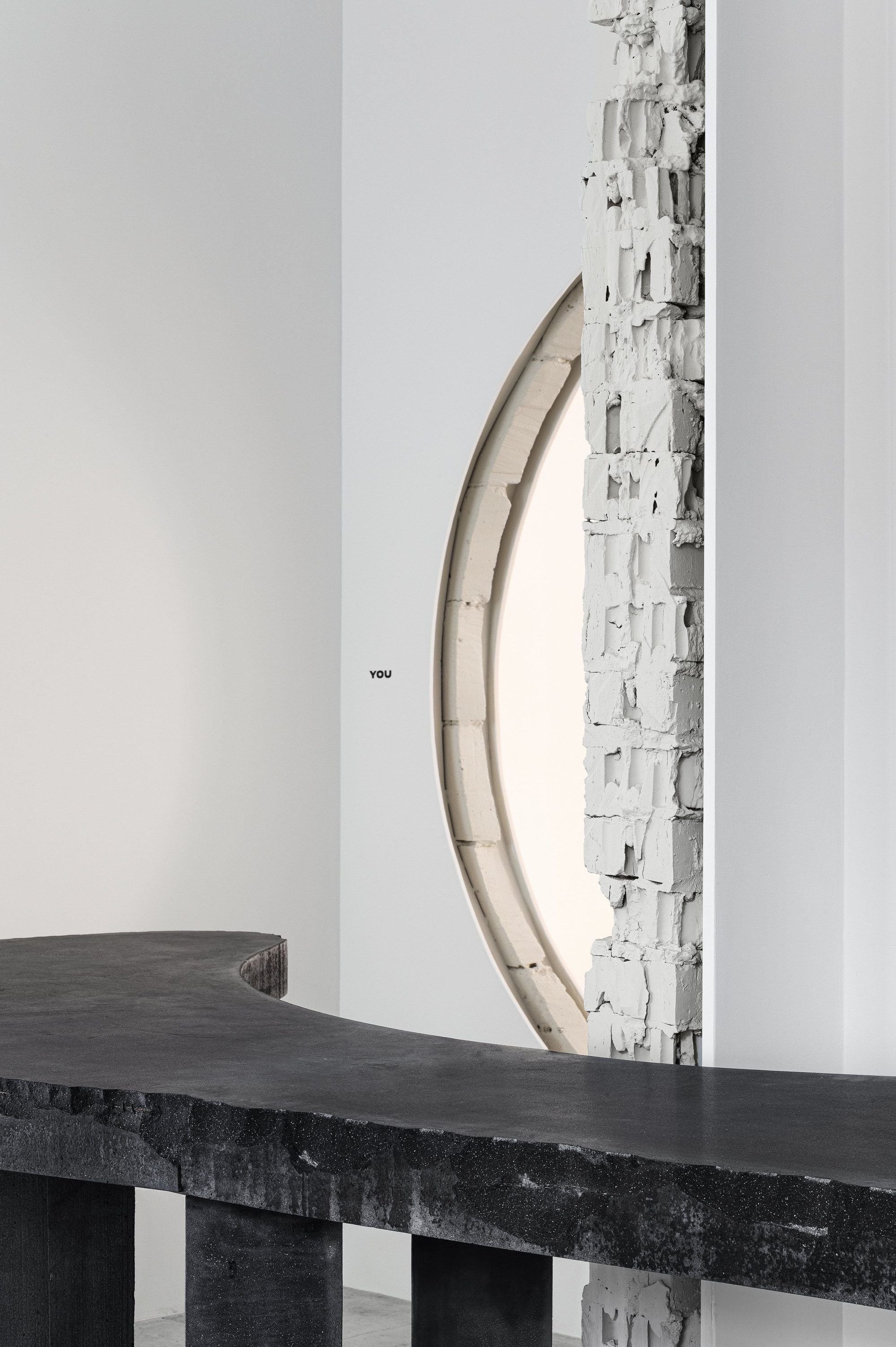
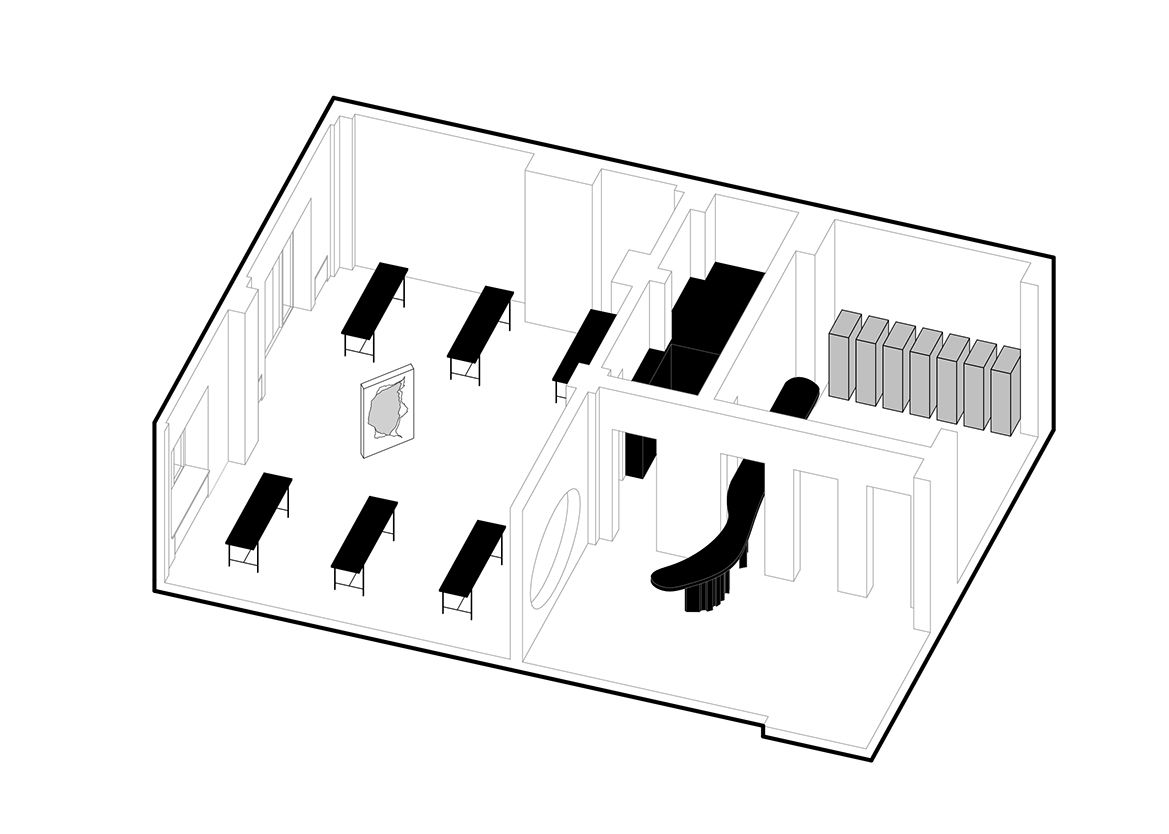
As a result of Ulyana’s commitment to art, almost every interior element is an object of art. The Podil-shaped movable split mirror was created by two Ukrainian sculptors, while alongside Mart Stam’s classic cantilever chairs, much of the furniture was selected from propro. The most monumental element is the uniquely shaped, eight-hundred-kilogram graphite concrete table. The wave-like counter flows through the spaces, serving as a reception and a drawing surface for the artists. The manually shaped edge gives the velvety surface a raw power, like a tattoo to a human body. Also prominent is Christina Ridzel’s “Boy” sculpture, which symbolizes a person’s role in society. “You dissolve into the crowd in the rhythm of the metropolis, forgetting who you are. Covering your eyes with your palms, you dive into your world, where you are alone with your essence. This artifact was placed directly before the entrance, telling his story to everyone who steps inside,” they say.
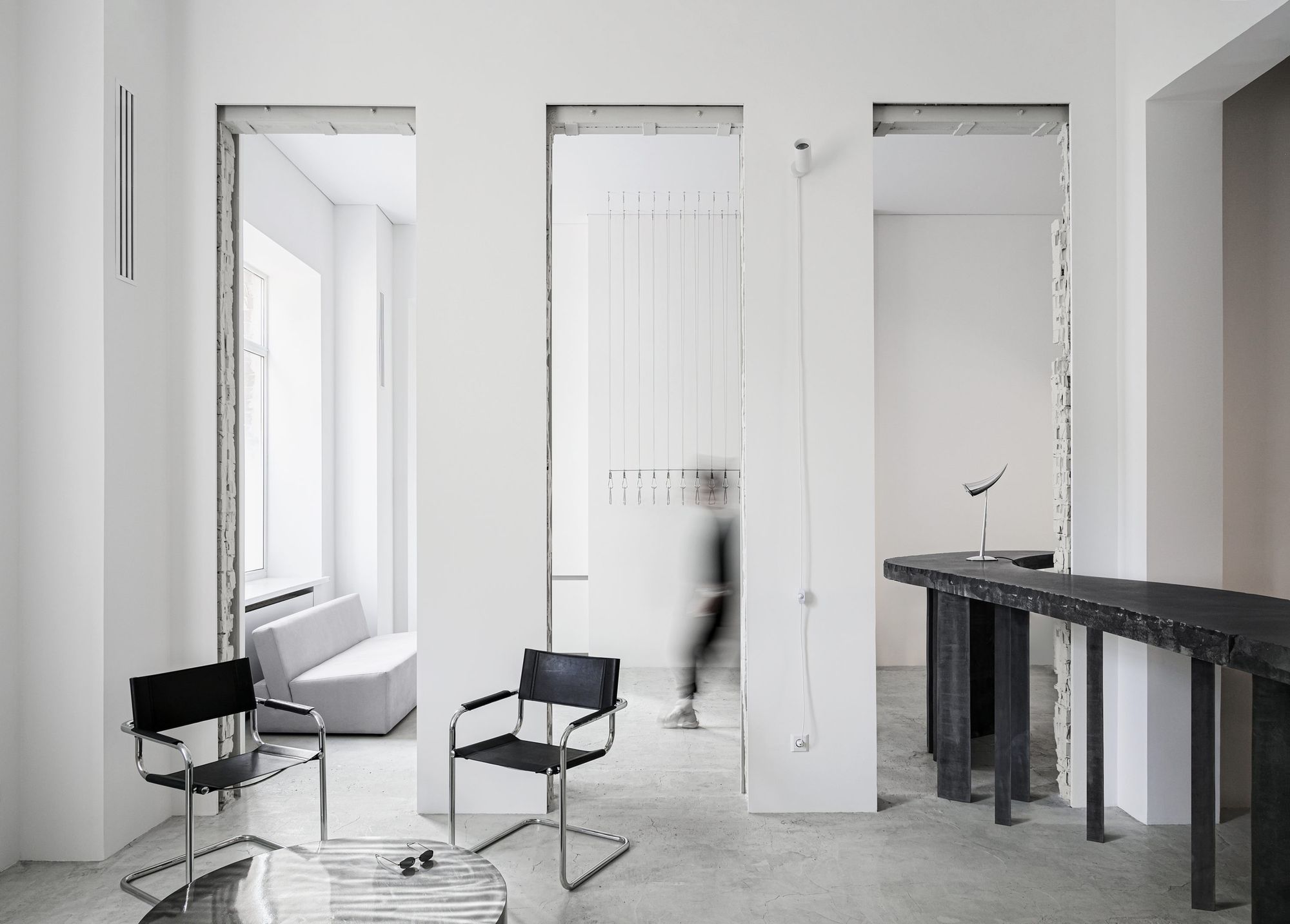
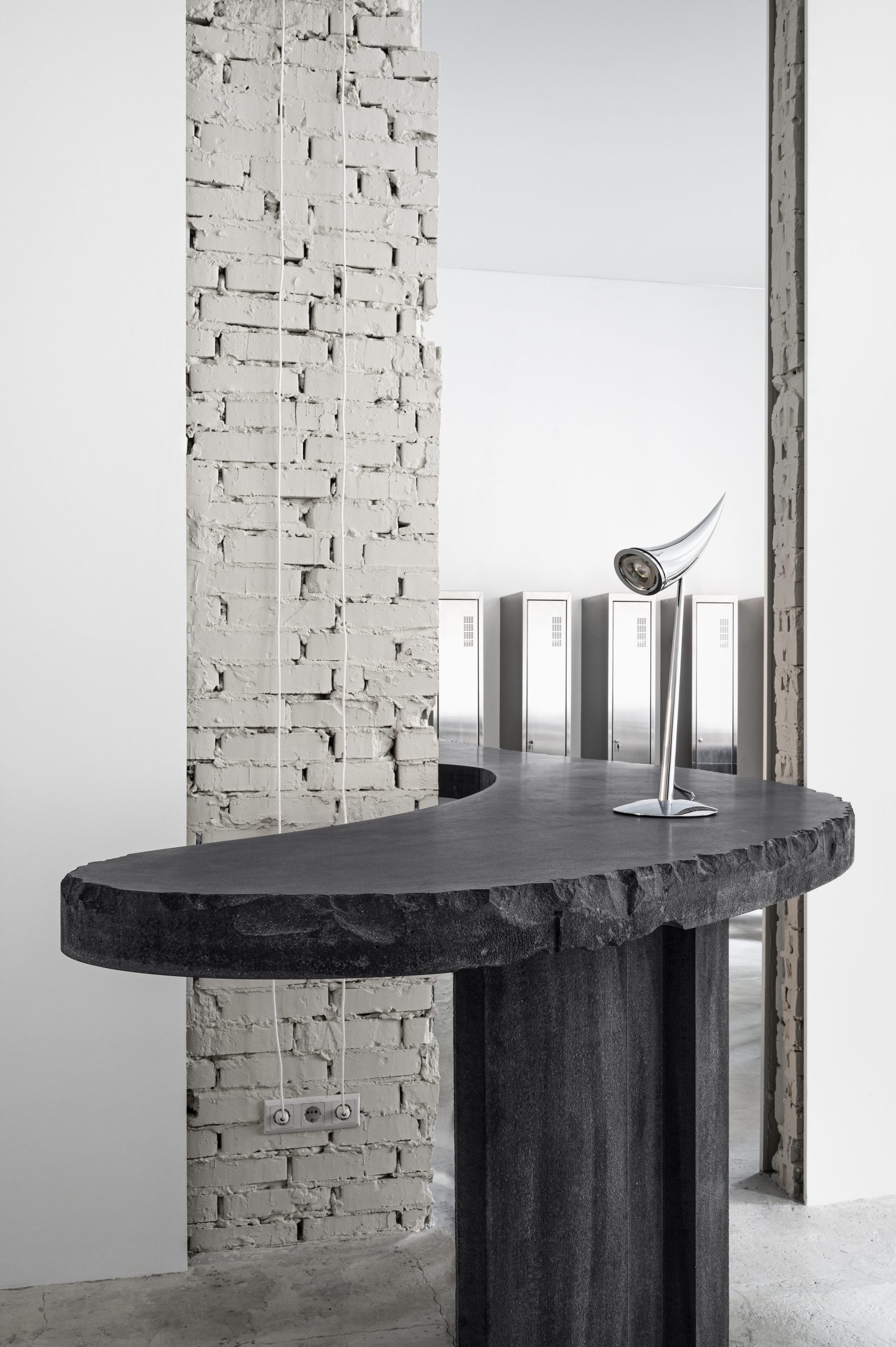
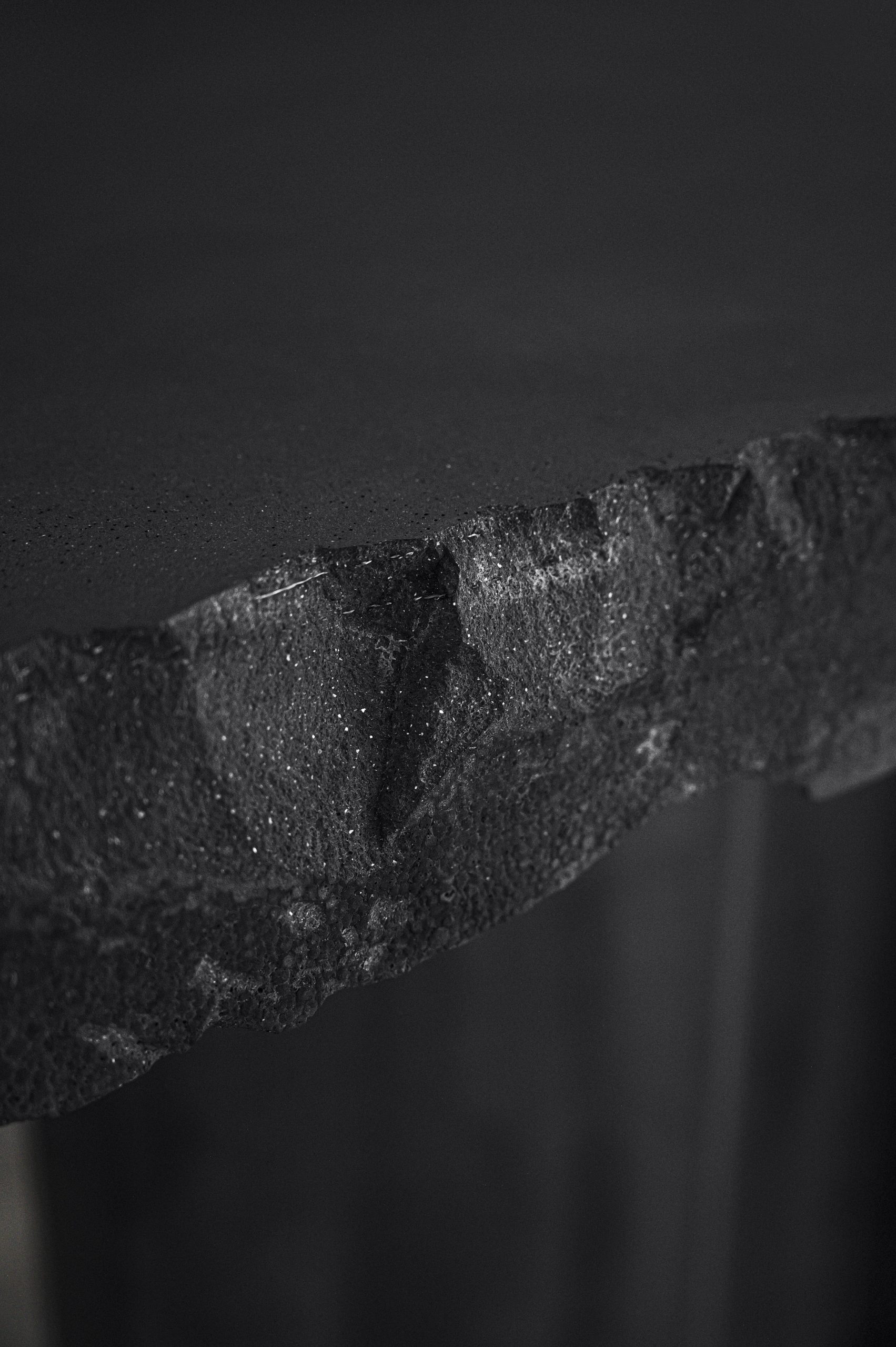
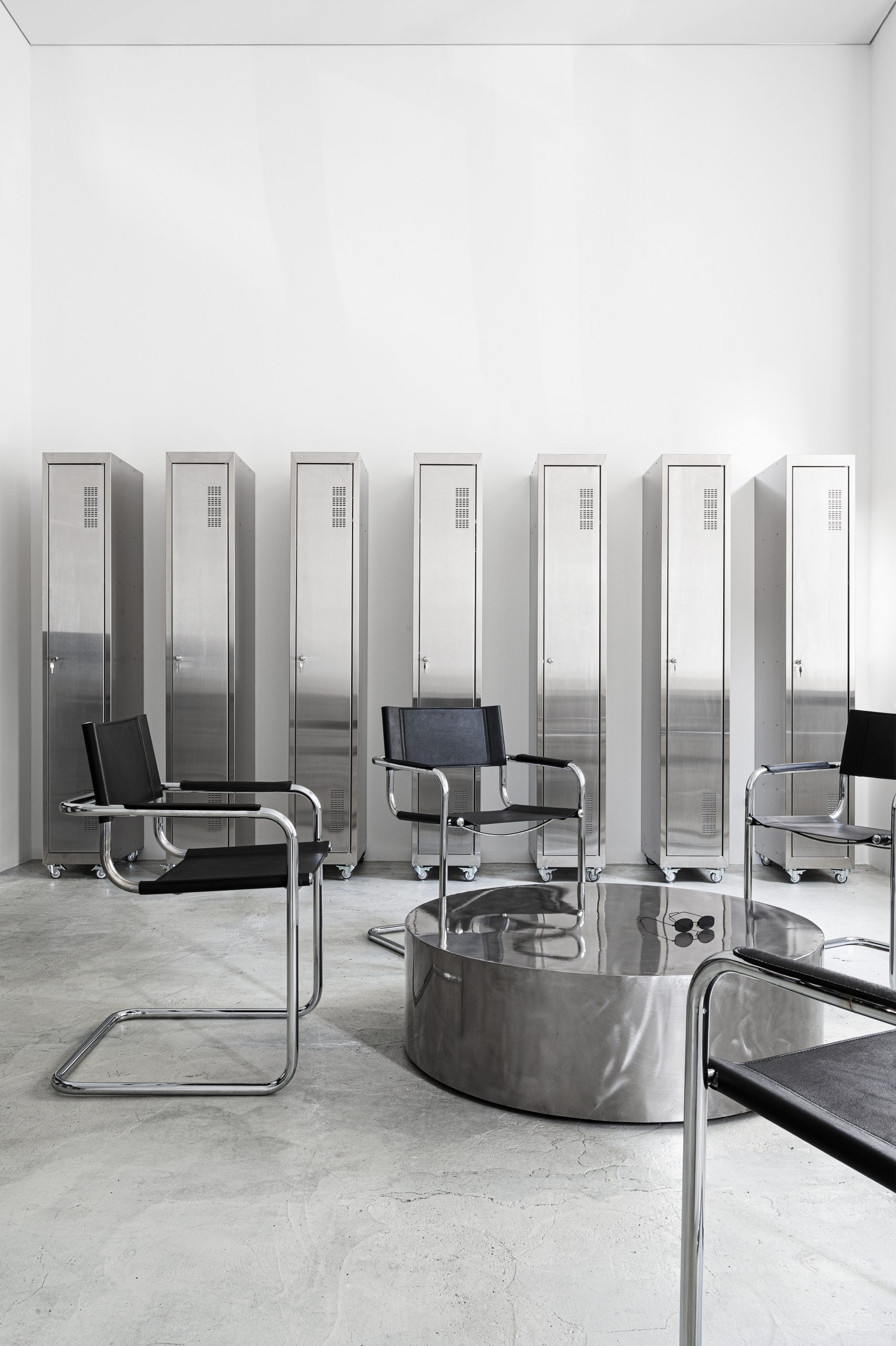
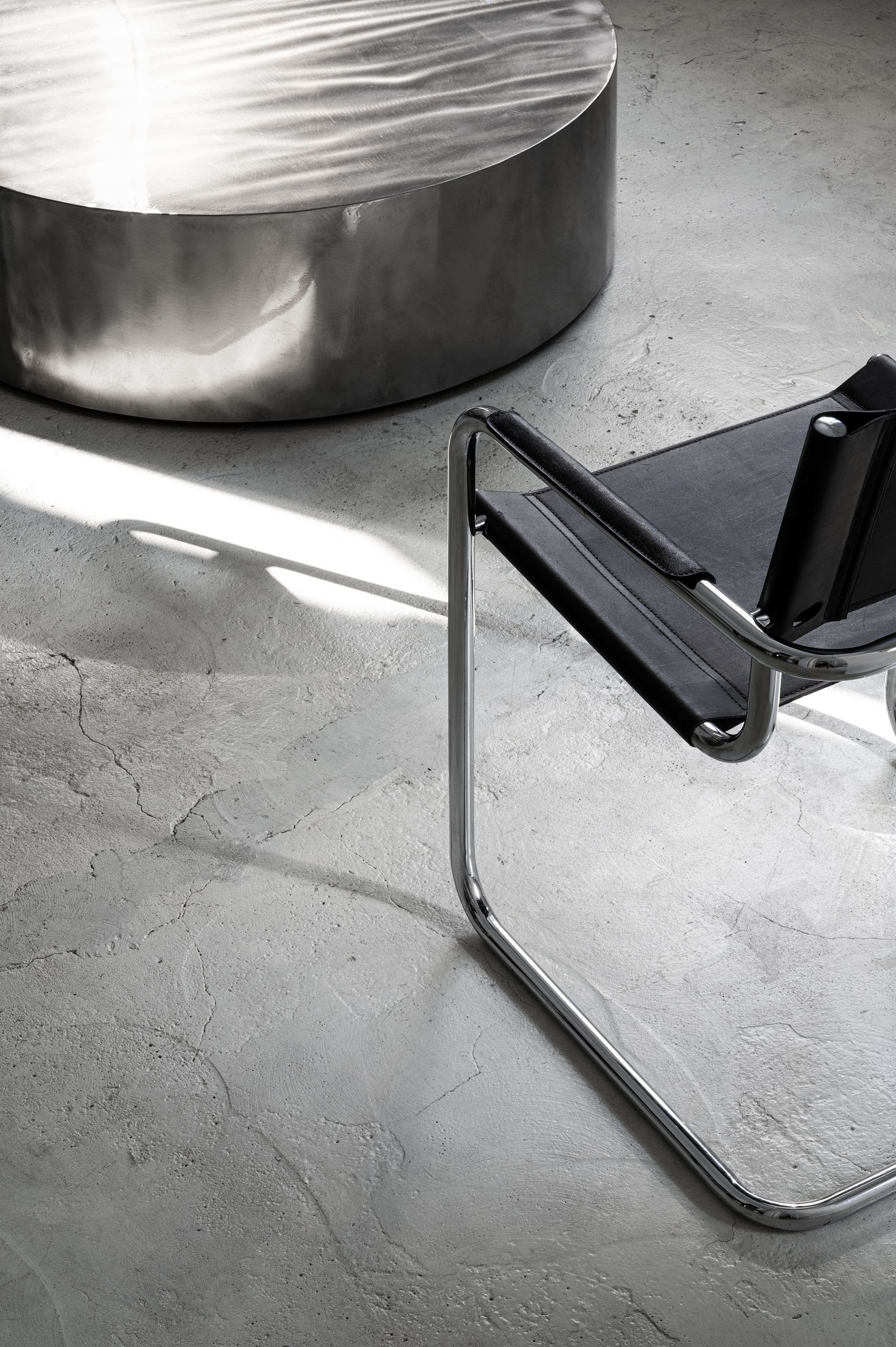
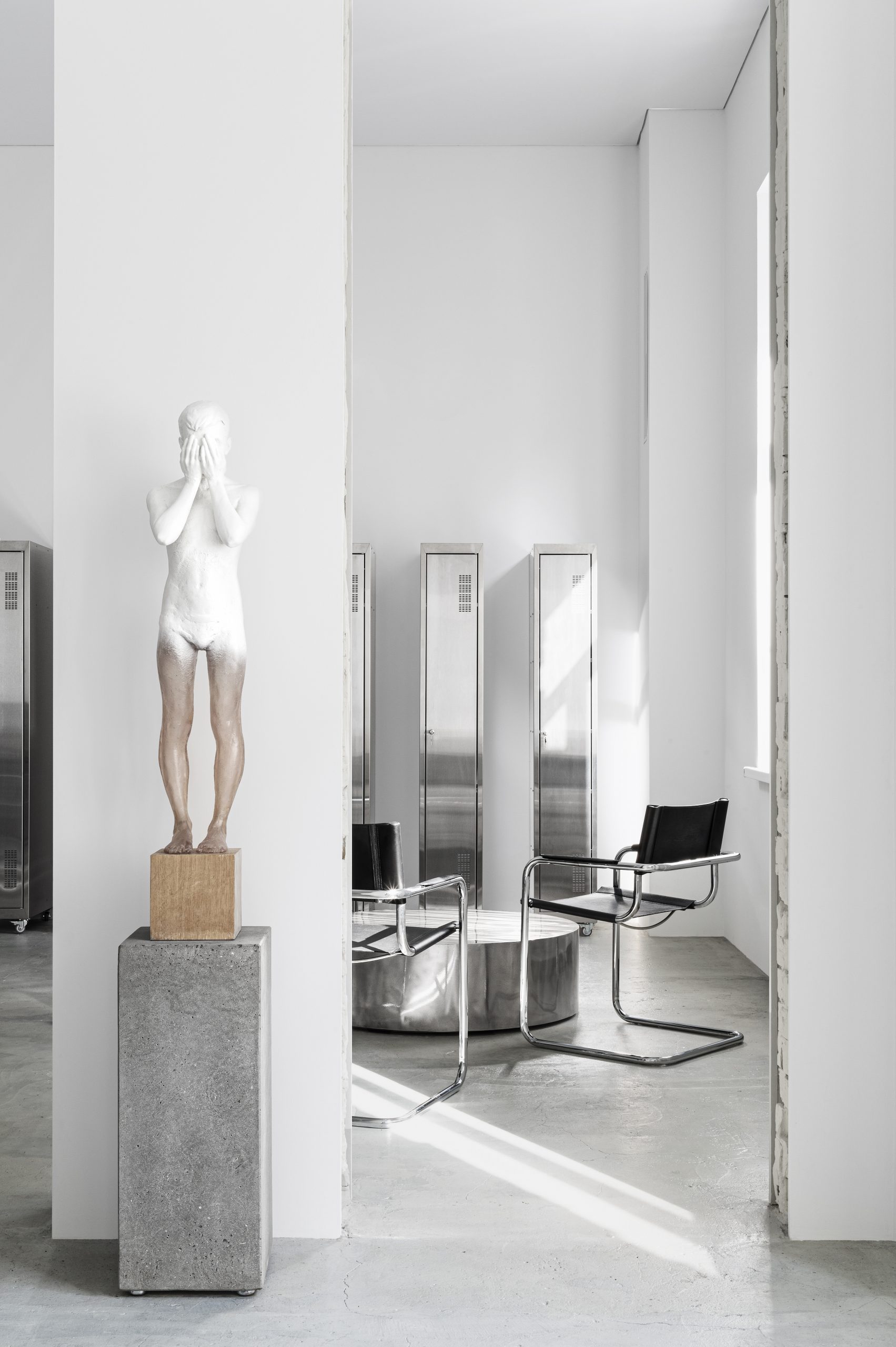
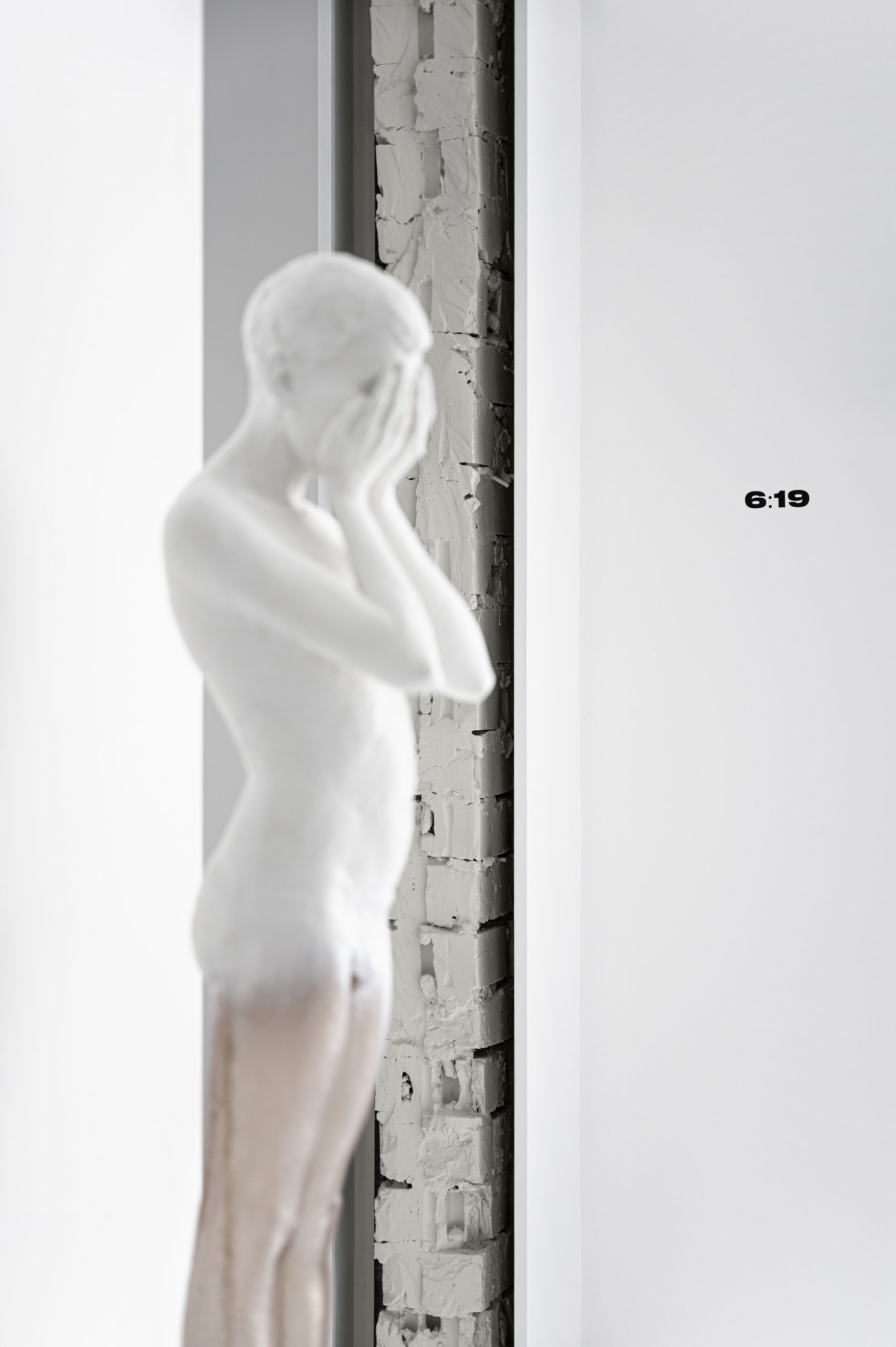

Can chewed gum become jewelry?
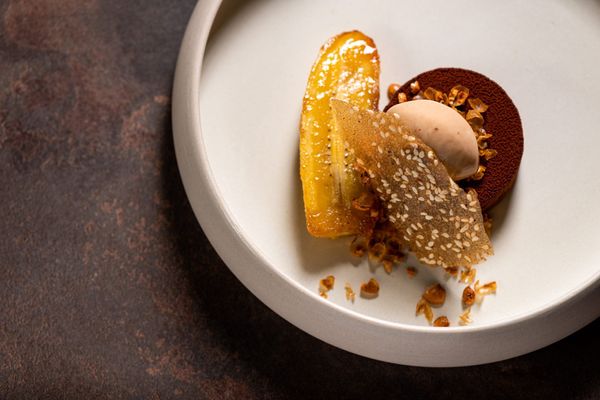
Celebrating confectionery | Borkonyha Dessert Dinner
